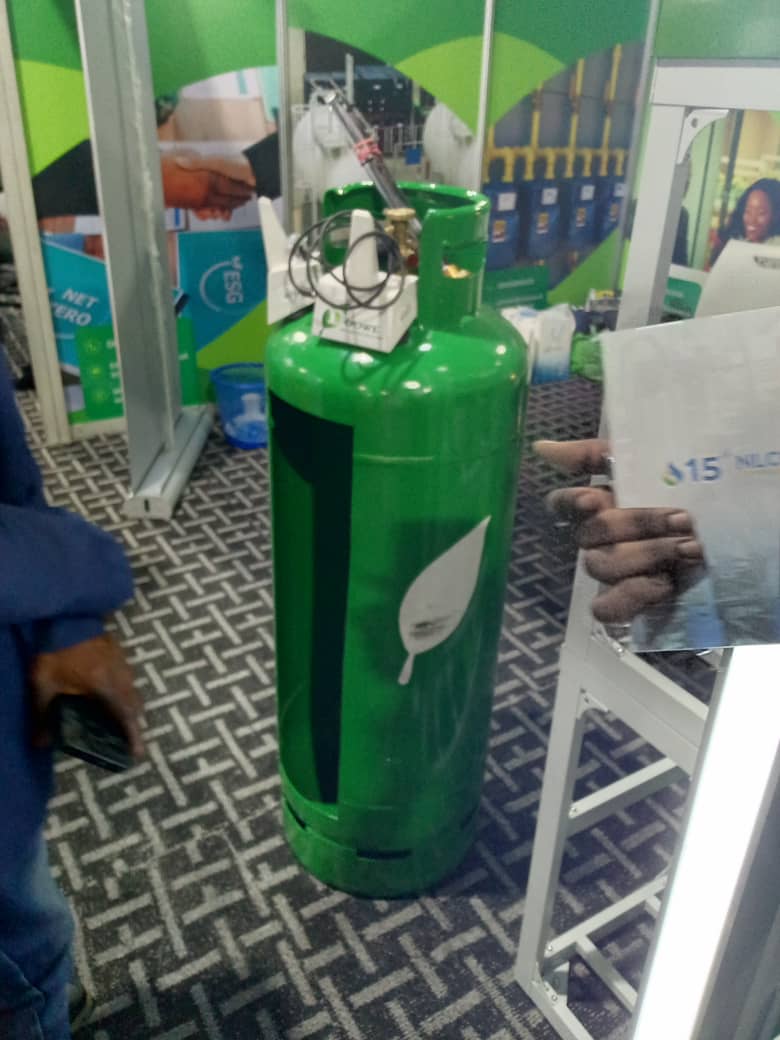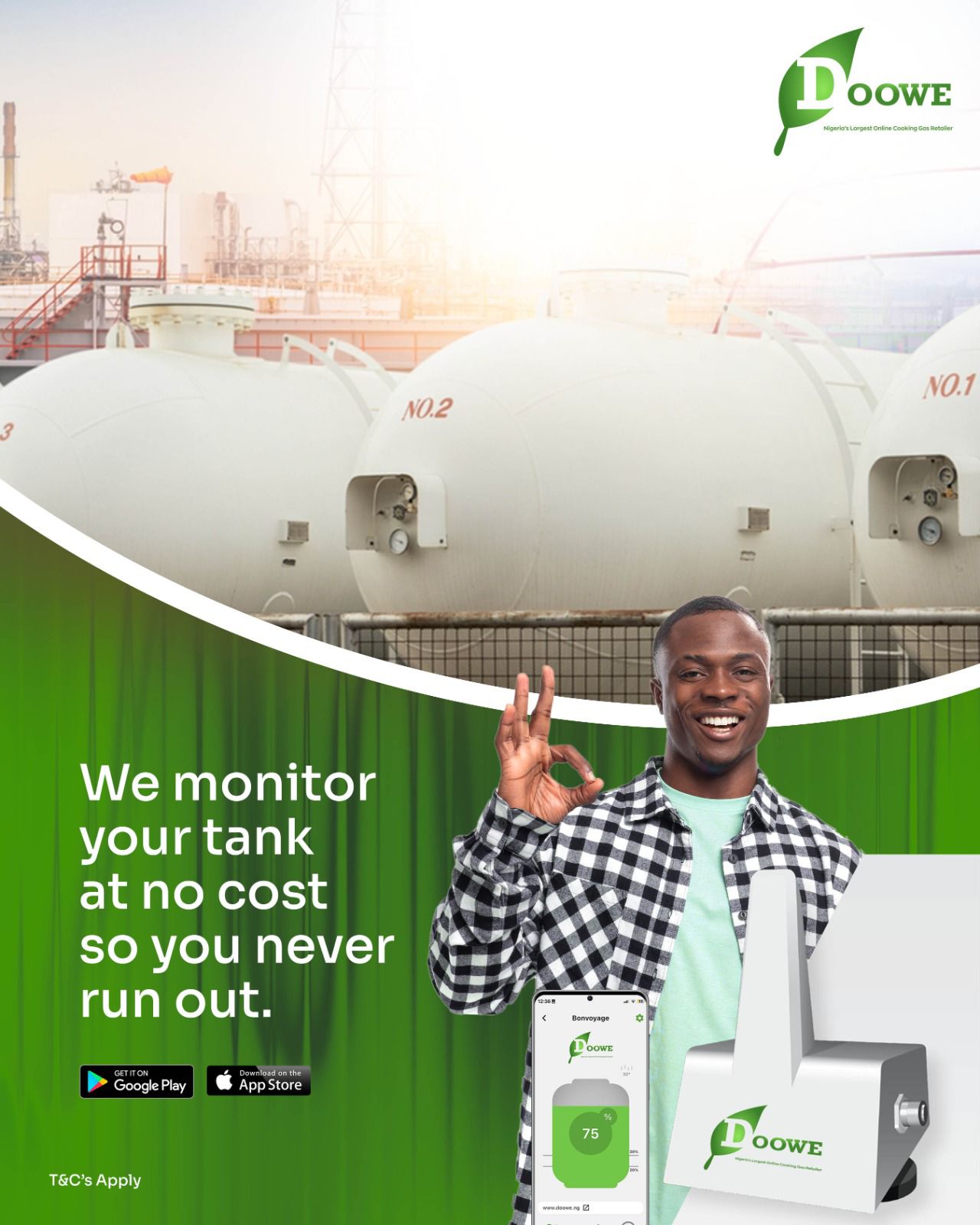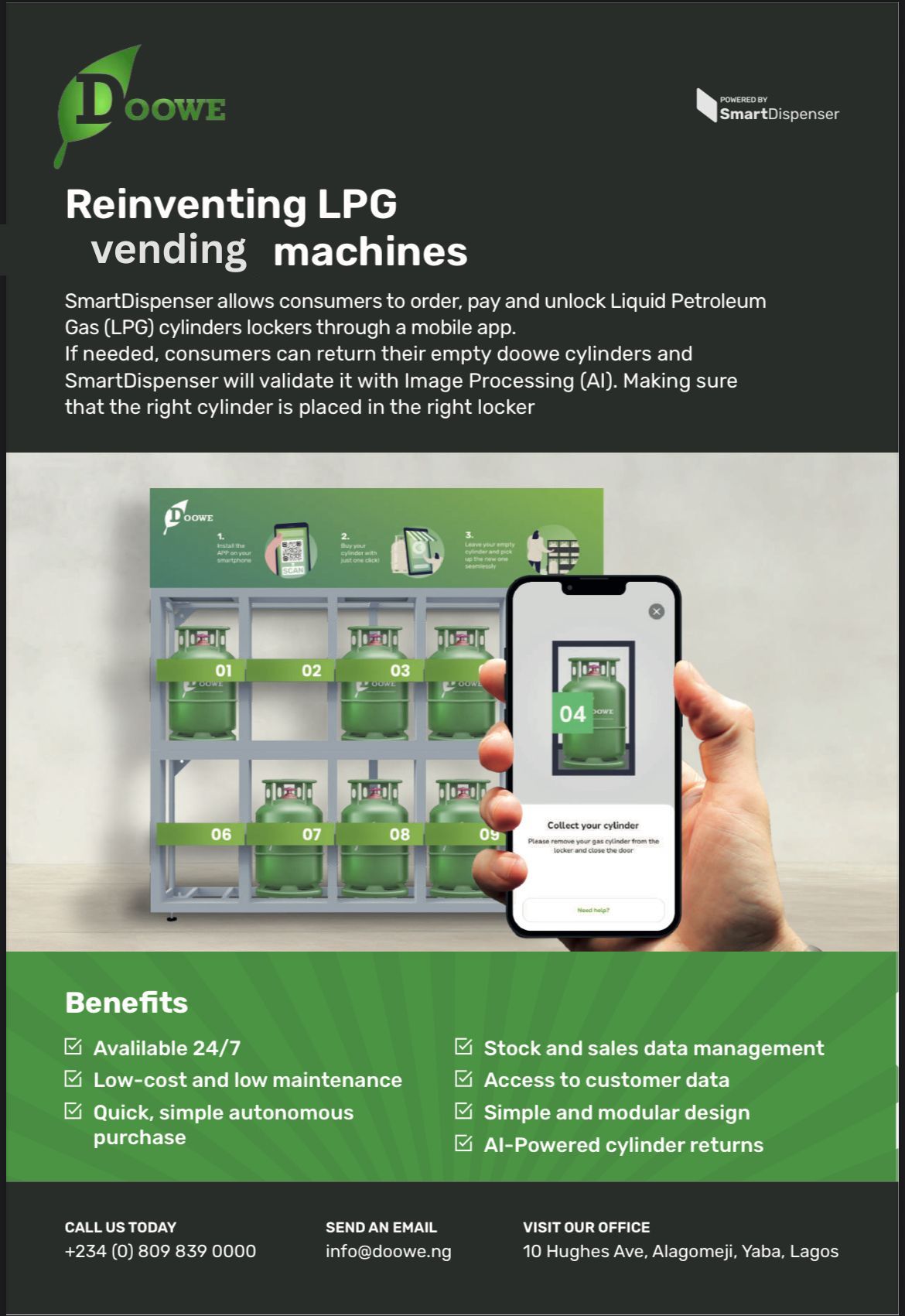The Federal Government is set to establish 500 Compressed Natural Gas refuelling stations across the country within three years, as part of efforts to accelerate Nigeria’s transition to cleaner, cheaper fuels and ease pressure on petrol consumption.
This follows the conclusion of discussions between the Midstream and Downstream Gas Infrastructure Fund and Chinese equipment manufacturer, Endurance Group, on the rollout of large-scale CNG infrastructure, the Executive Director of the MDGIF, Oluwole Adama, disclosed in a statement released on Sunday.
The statement read, “The Midstream and Downstream Gas Infrastructure Fund concludes discussion with leading Chinese Manufacturer Endurance Group to make available 500 CNG refuelling stations across Nigeria for the next 3 years.”
Adama said the talks resulted in an agreement to create a government-backed Special Purpose Vehicle, promoted by the MDGIF, Bank of Industry, Endurance Group and Séquor Investment Partners, to drive the project.
According to him, the SPV, to be known as source Compressed Natural Gas Auto Mobility Infrastructure Company, will “deploy 500 integrated CNG refuelling stations; develop LCNG gas supply infrastructure; and provide CNG and LNG transportation trucks with truck-mounted cascades, forming a virtual pipeline across all states nationwide.
“The collaboration underscores the parties’ commitment to accelerating Nigeria’s transition to cleaner fuels by addressing infrastructure gaps across the country’s CNG value chain.
“Under this agreement, we will set up the Compressed Natural Gas Auto Mobility Infrastructure Company, which will be used to deploy 500 integrated CNG refuelling stations, develop LCNG gas supply infrastructure, and provide CNG and LNG transportation trucks with truck-mounted cascades, forming a virtual pipeline across all states nationwide.”
He noted that the initiative would help eliminate the long queues currently witnessed at existing CNG stations by expanding access to refuelling points and improving logistics to ensure uninterrupted supply.
The move comes as the current administration intensifies its shift toward gas as a more affordable alternative to petrol and diesel, following the removal of fuel subsidy and the liberalisation of the downstream market.
Government officials have repeatedly argued that auto-CNG adoption is critical to stabilising transportation costs, improving energy security and reducing pressure on foreign exchange used for fuel imports.
Nigeria, with over 200 trillion cubic feet of proven gas reserves, has struggled for years to build adequate midstream infrastructure, leaving large parts of the country underserved.
The CNG rollout is one of the flagship components of the Presidential Compressed Natural Gas Initiative launched in 2023 to reduce reliance on Premium Motor Spirit and Automotive Gas Oil.
Commenting, the Senior Special Adviser to the President on Special Duties and Domestic Affairs, Oluwatoyin Subair, said the CAM InfraCo project aligns directly with President Bola Tinubu’s energy security agenda.
On his part, the Chief Executive Officer of Endurance Group, Eric Lin, said the SPV aims to establish a nationwide refuelling, maintenance and logistics ecosystem by leasing CNG equipment to certified operators and ensuring a steady gas supply through a reliable virtual pipeline network.
“CAM InfraCo’s leasing and logistics strategy is designed to create a commercially viable and resilient national CNG refuelling network,” Lin said.
He added that the distribution model would deliver gas from strategically located mother stations into underserved northern corridors and high-demand southern clusters, leveraging existing hubs and planned infrastructure to support sustained and cost-effective expansion.
When completed, the initiative is expected to significantly deepen access to gas-powered transportation, reduce reliance on imported fuels, and strengthen the country’s ongoing transition to cleaner energy sources.
Stakeholders in Nigeria’s oil and gas sector have been urged to adopt Alternative Dispute Resolution, particularly mediation, as a faster, cheaper, and more business-friendly approach to resolving industry-related conflicts.
This call was made at the Roundtable Consultative and Sensitisation Forum organised by the Nigerian Upstream Petroleum Regulatory Commission on Wednesday in Lagos. The event, themed “Strengthening Stakeholders’ Knowledge of the ADRC’s Mandate and Promoting Efficient, Collaborative and Sustainable Dispute Resolution in Nigeria’s Upstream Petroleum Industry,” focused on deepening understanding of the Commission’s Alternative Dispute Resolution Centre.
Speaking at the event, NUPRC Chief Executive, Gbenga Komolafe, said the Commission established the ADRC to institutionalise fairness, dialogue, and inclusivity in addressing disputes within the oil and gas sector.
Komolafe, represented by the Commission’s Secretary and Legal Adviser, Mrs Olayemi Adeboyejo, said the initiative demonstrated a shared industry resolve to address disputes constructively, adding that it aimed to foster transparency, equity, and cooperation.
“This gathering is not just another industry event; it is a reaffirmation of our collective resolve to institutionalise dialogue, equity, and inclusivity in the resolution of industry-related disputes,” Komolafe said.
He noted that the ADRC was created as a specialised, neutral, and sector-specific platform for resolving disputes in Nigeria’s upstream oil and gas industry.
“By offering mediation, the Centre ensures timely, impartial, and cost-effective dispute resolution consistent with international best practices,” he stated.
Komolafe urged operators, host communities, and legal practitioners to embrace the ADRC as “a strategic ally in corporate governance and risk mitigation” rather than a regulatory mechanism.
“Our objective is to make ADR not the last resort but the first choice for dispute resolution in Nigeria’s upstream petroleum industry,” he added.
According to him, the Commission has achieved key milestones since the Centre’s creation, including inaugurating its Board of Neutrals in Lagos and Yenagoa in 2024, and hosting a capacity-building programme earlier in 2025 to align procedures with global standards.
He said the Board comprised eminent professionals such as retired judges, lawyers, and technical experts versed in ADR processes and committed to neutrality and confidentiality.
Earlier in her welcome address, Adeboyejo urged oil and gas stakeholders to embrace mediation as a commercially viable alternative to prolonged litigation.
“In Nigeria, when people say, ‘Let the court decide,’ sometimes what they really mean is, ‘See you in ten years,” she quipped.
“By that time, oil prices may have changed, the parties may have changed, and even the lawyers handling the matter may have changed chambers twice.”
She noted that under the Petroleum Industry Act 2021, the ADRC was established as a core pillar of the new regulatory framework to promote fairness, confidentiality, and efficiency in dispute management.
“Data from the Centre for Effective Dispute Resolution shows that 80 to 90 per cent of disputes referred to mediation are successfully resolved, often within days or weeks, not years,” she said.
She stressed that the ADRC guarantees neutrality through an independent body of neutrals, joint selection and payment of mediators by both parties, and strict confidentiality.
“No journalist will get a scoop from your mediation room,” she assured. “What happens in mediation stays in mediation.”
Adeboyejo added that the Centre’s mediators possess technical knowledge of the oil and gas industry, giving them a unique advantage in resolving disputes quickly and efficiently.
“Our neutrals can distinguish between a wellhead and a headache — and that makes all the difference,” she said.
Also speaking, Vice Chairman of the Petroleum Technology Association of Nigeria and Managing Director of Global Process and Pipeline Services, Mr Obi Uzu, said the ADRC was a step in the right direction but called for a clear legal framework to support it.
“This is a very important platform for resolving complex contractual issues. Some of our members have completed projects for two to three years without payment,” he said.
“We want to see this platform work, but we also want to be sure it will be trusted by both clients and service providers.”
He noted that for mediation to gain traction, future contracts in the industry must expressly recognise ADR mechanisms.
On his part, Chief Executive Officer and Coordinating Mediator of the Dispute Solutions Hub, Mr Adeyemi Akinsanya, described mediation as “the future of dispute resolution in the oil and gas sector,” noting that prolonged court cases destroy value and relationships.
“Most courts are congested, and cases can take twenty to thirty years to resolve,” he said. “Mediation offers a quick, efficient, and practical way of finding a win-win solution that satisfies both sides and preserves business relationships.”
Similarly, Senior Advocate of Nigeria and energy law expert, Mr Tunde Fagbohunlu, emphasised that mediation should be seen as a process of facilitation, not adjudication.
“Mediation is not about who is right or wrong; it’s about getting the parties to agree,” he said. “The regulator’s role is not punitive but facilitative.”
Fagbohunlu called for a standing inter-stakeholder mechanism to strengthen confidence in ADR and ensure continuous engagement between regulators, operators, and mediators.
Legal practitioner Ms Oyoje Bello of Green Energy described confidentiality and neutrality as “the cornerstones of effective mediation.”
“When you enter that mediation room, you’re entering a safe space. What happens there stays there. The focus is on resolution, not regulation,” she said.
Also, dispute resolution expert, Mr Fola Alade, described mediation as “justice delivered differently,” saying it saves time, protects value, and promotes collaboration.
“Litigation delays projects and increases financial and reputational costs. Every day, a project is tied up in dispute, millions are lost,” he said.
Alade advised that disputes should first go through negotiation and mediation before resorting to arbitration or litigation.
“Mediation and litigation are not rivals; they can coexist. The key is using the right tool at the right time,” he said
A member of the NUPRC Body of Neutrals, Dr Adenike Esan, also urged industry players to make mediation their first choice.
“Businesses are not set up to resolve disputes; they are set up to achieve objectives,” she said. “When disputes arise, we must resolve them efficiently and quickly.”
Esan noted that mediators at the ADRC possess the technical expertise to understand complex petroleum issues and bridge gaps that often delay arbitration or court processes.
“Mediation may not always end in a settlement,” she added, “but even when it doesn’t, it helps parties understand each other’s positions better and sometimes paves the way for future cooperation.”
Doowe – Powering Innovation. Energizing Africa.
👋 DooweGas is on a mission to ignite the future of energy, and we want YOU to be a part of it! Our YouTube channel is the place for in-depth analysis, expert interviews, and the latest breakthroughs for professionals, investors, and policymakers in the energy sector.
Why Subscribe NOW?
Exclusive Content: Get cutting-edge insights you won’t find anywhere else.
Expert Analysis: Understand the “why” and “how” behind the biggest energy stories.
Community: Join a growing network of passionate energy professionals.
Be a Pioneer: Help us build the ultimate resource for African energy intelligence!
✅ Discover innovative LPG solutions
✅ Learn how we’re powering homes & businesses sustainably
✅ Connect directly with our team
👉 Don’t miss this chance to experience the future of energy with Doowe Gas!
✨ Limited-Time Exclusive Offer for Our Next 900 Subscribers! ✨
To celebrate our journey to 1000, the next 900 people who subscribe to our channel will receive an exclusive, in-depth access to our research from DooweGas on “The Future of LPG in West Africa: Opportunities & Challenges,” absolutely FREE! This is invaluable for anyone in the energy space.
Join The DooweGas Mentorship Access By Doowe investment limited
Annual Access – DooweGas Mentorship WhatsApp Group
Unlock premium, year-round access to our exclusive community of serious gaspreneurs and experts.
What You Get:
Business insights from seasoned operators
Live Monthly Sessions: With industry leaders and DooweGas experts
Sales Strategies: Learn how to scale bulk sales, B2B, and cylinder tracking
Business Support: Ask questions, get feedback, and learn from real gaspreneurs
Group Referrals: Connect with reliable vendors, customers, and suppliers
Private Group Access: 24/7 interaction and guidance from mentors and alumni
How To Join And Take Advantage Of This Opportunity: Click: https://shorturl.at/vRq7w
Don’t miss out on this incredible opportunity to deepen your knowledge and get a valuable resource straight from Nigeria’s leading LPG retail company!
Join Our Gas Whatsapp Page
Send your number to : WhatsApp number : +2348134708634 to join and be a part of our energy journey.
Join the conversation on youtube. Get informed. Get empowered. Subscribe today!
➡️ Click here to subscribe and claim your FREE access: https://www.youtube.com/@doowegas/
Source: www.punchng.com





